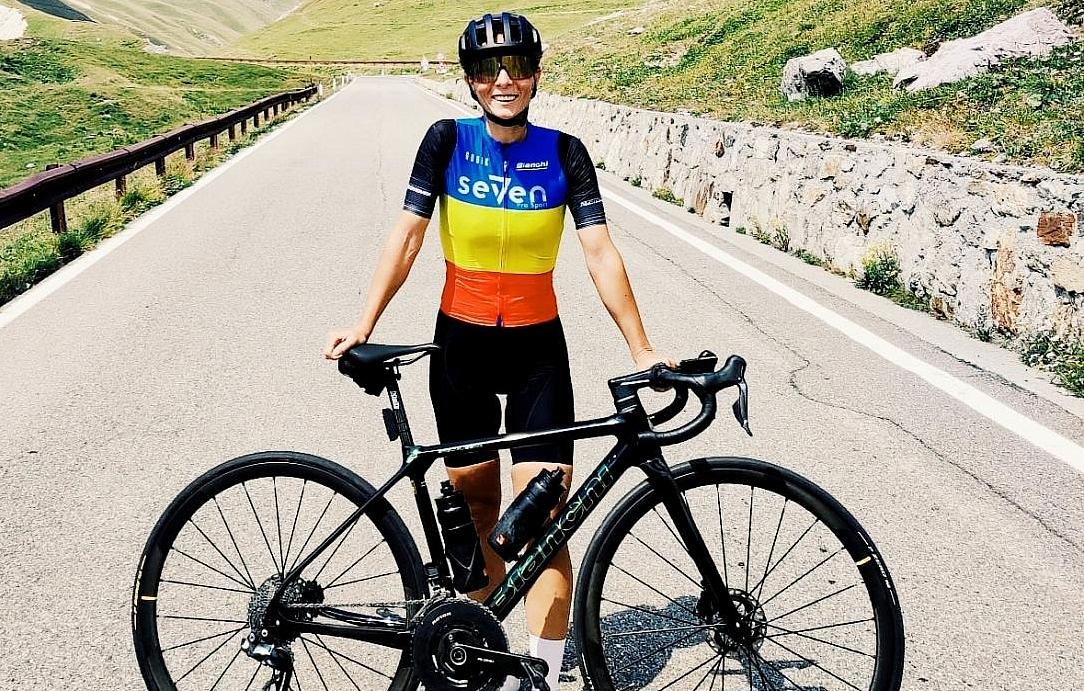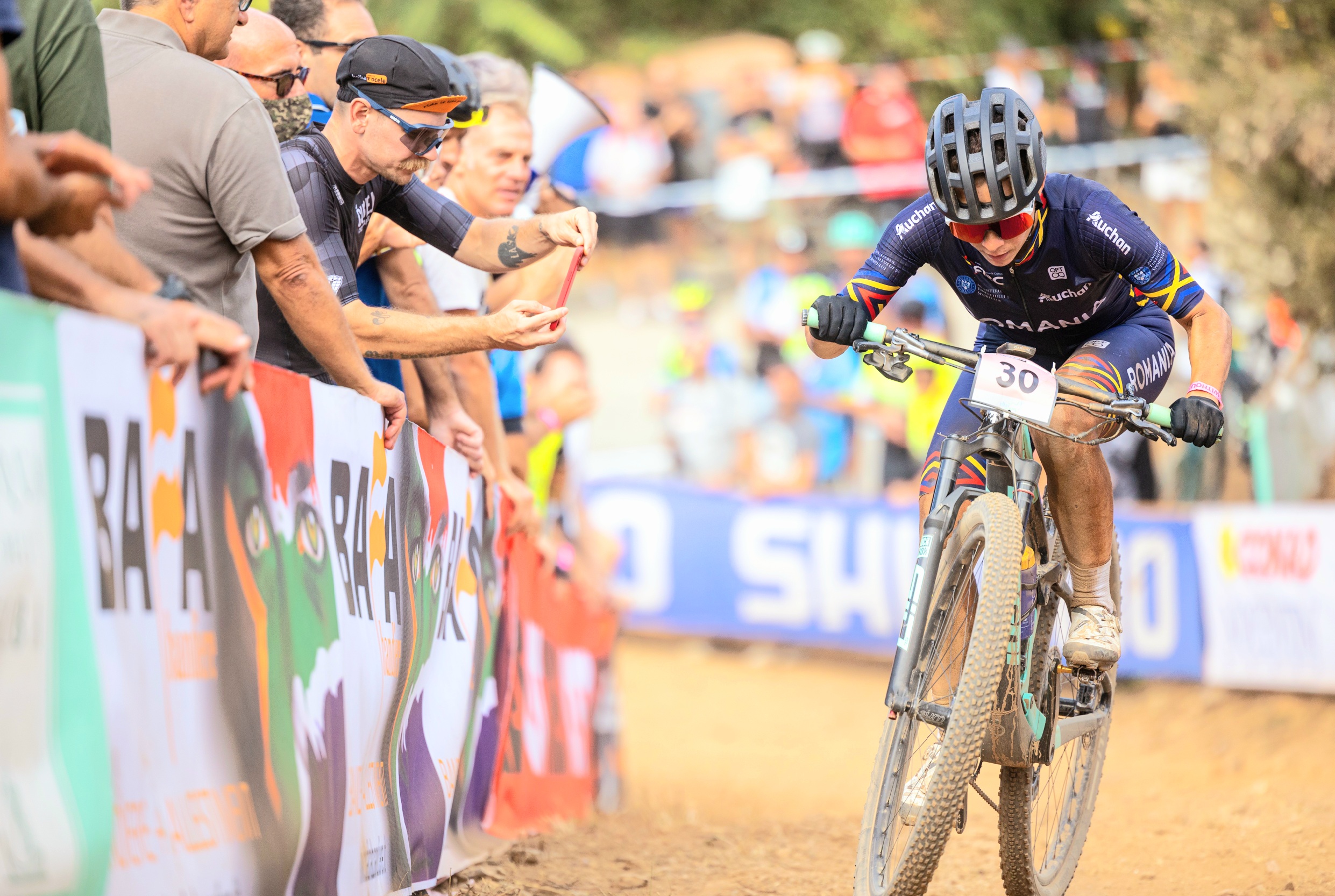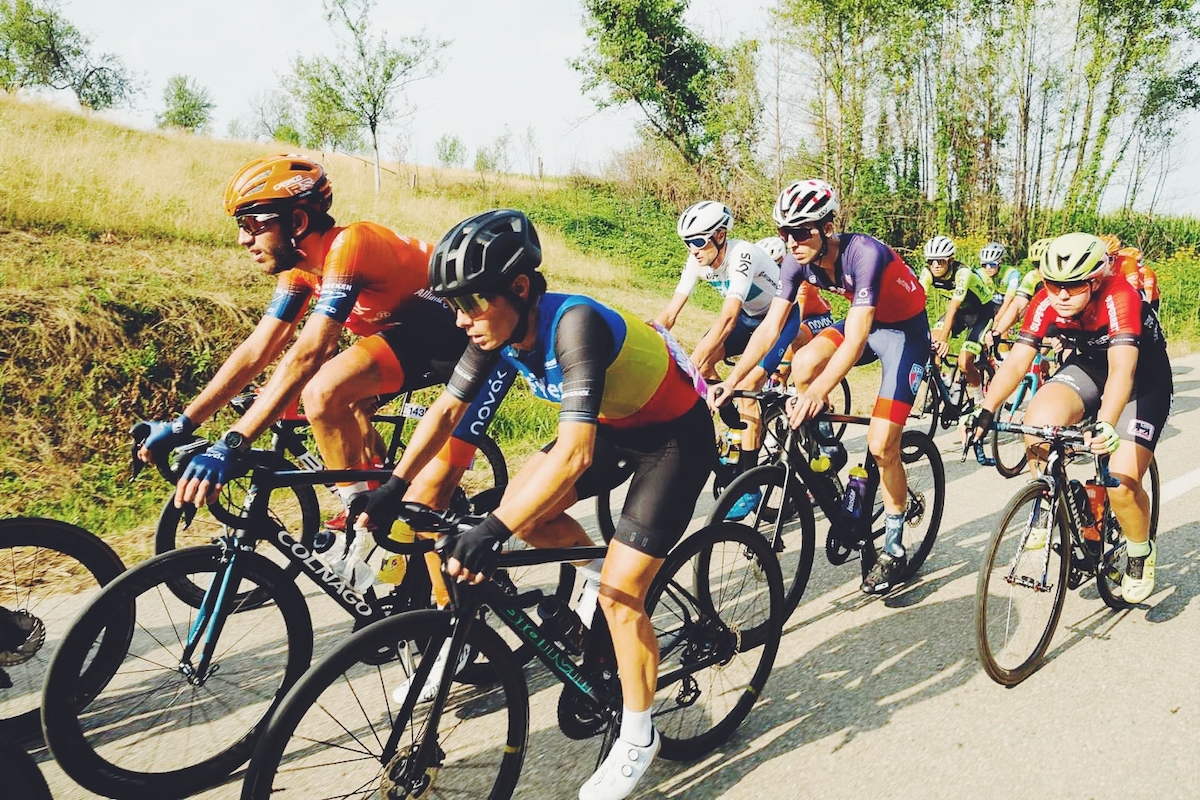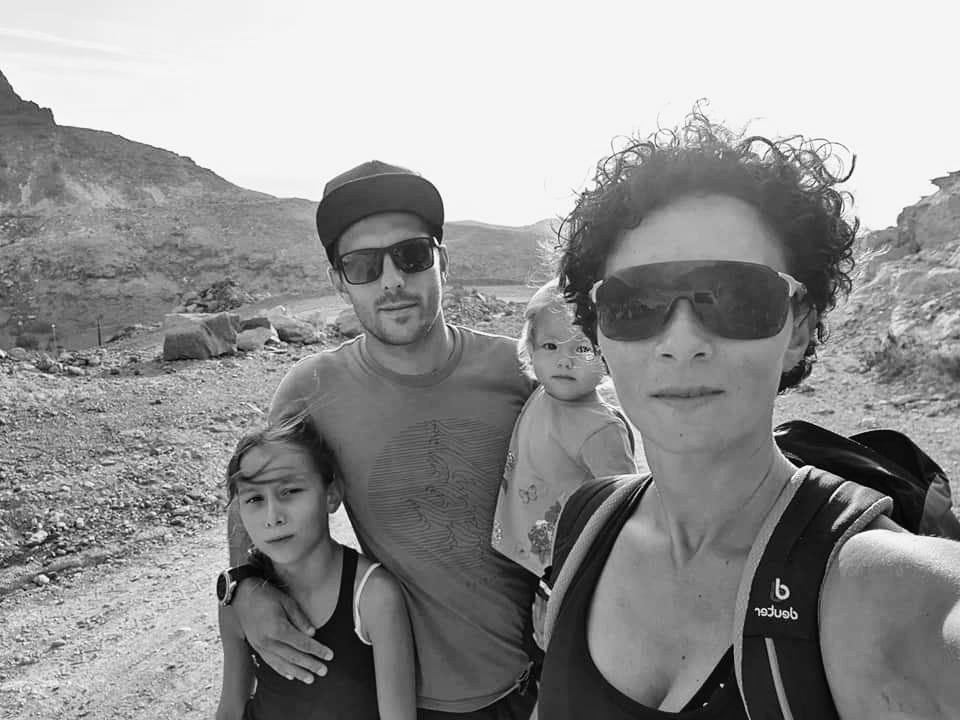On the bumpy saddle to success: Romanian mountain and road bike women’s champion shares the meaning of her achievements in an uncharted world



Former mountain triathlete, now Elite mountain and road cyclist, Manuela (Ela) has finished her morning training and just unmounted her black Bianchi Specialissima, which does not happen frequently. On April 30, 2015, she decided to buy a mountain bike, ready for a quick 40 km spin with her husband, Florin. It was her first proper ride when she purposefully cut into a road curb and instantly fell off. “I did not stop there. I kept on going and, since then, I have been spending most of my time on the bike,” says Ella.
Her biggest challenge was to come back to cycling after giving birth to her second daughter. “After she was born, I had to start from absolute scratch. I lost my fitness, I felt like I lost everything I achieved,” remembers Manuela. However, she had decided to get back to cycling from the days she was pregnant. Being a mountain triathlete before falling in love with the bicycle, she tried her best to keep fit during pregnancy. She was running up to 10 km until month six.
Nevertheless, Ela recalls how she needed to stop: “I couldn’t move normally. I gave birth in August, but then, in November 2018 I was back on the bike. I was so weak during the first ride I started crying. I was crying and pedalling, struggling on a false flat of an improbable 1-2%”, says Ela.

Many sportswomen around the world go through a tough dilemma surrounding pregnancy. The toll childbirth leaves on the body, the expected active role from mothers in raising children, or the pressure of returning to the previous standard of play are just a few factors professional female athletes consider before committing to having a baby. Sadly, women’s cycling is extremely underdeveloped.
The Women’s World Tour, in the organised form we see it today, had its first edition only in 2016. Furthermore, Romanian women’s cycling has so little to offer, that there is close to no motivation to get back on the bike. The number of women starting the highest level (Elite) of Romanian national championships for any given criteria, is, on average, half the number of starting players in a football team.
Apart from the challenges that do not depend on cycling alone, there is also the money concern. After partaking for a while in such a lagging sport, many women end their career in professional cycling and prefer to start an office job for financial safety.
2022 was the first year La Course became Tour de France Femmes, and, a multi-stage race. This is a big step forward for women’s cycling. Moreover, in recent years, the minimum salary of a woman in a UCI World Team has been increasing and it is expected to reach men’s Pro Teams in 2023.
Still, many women pro cyclists who are not part of the highest tier of cycling teams earn no salary at all. Apart from being a proud mother of two girls, Manuela’s main activities outside of cycling include managing a holiday villa in her town in Grand Canaria.
“I am extremely lucky to have Flo, my husband, helping me to manage remotely our Airbnb. That means I have the freedom to be flexible with my time. For example, when I come to Romania, I know I come for cycling, and depending on the weather, I could train 2 hours today and 10 tomorrow,” says Ela.
Cycling is generally a very expensive sport, and differences are made in milliseconds. Better equipment can make an athlete faster, as well as better training. Manuela chose to be coached by her own husband, but they also collaborate with pro coaches, mainly to save money.

Back in the Canary Islands, she has been part of the Seven Pro Cycling team ever since she reached the Elite category. “They mean something to me; I can feel their help, their support, in several situations, both in mountain biking and on the road,” confesses Ela.
She recently signed a contract with her first Continental team, Soltec. Continental is the tier just under the highest, and, as she puts it: “Basically I got to the next level. Continental teams receive invitations to the biggest races and only the best women compete there,” she adds.
Together with her new team, on September 7, Ela will start her first ever World Tour race, the Challenge by La Vuelta. “I will get there a few days before, and I will meet my teammates for the first time. Unfortunately, we will not get to know each other very well. I do not know what to expect, but it will definitely not be easy,” says Ela. In the meantime, she also competed in the Munich Road Cycling European Championships on August 21.
Before that, Manuela spent several days training in Romania at the Max Ausnit Cup in Lugoj, together with her family. She loves coming back to her home country to train, but, at the moment, she believes that the only way to become a good professional cyclist, if you are Romanian, is to join a team from abroad.
Eventually, this is what she would love her daughters to do, but only if they fall in love with the sport: “I would see myself being their coach, but only if they find themselves fit for cycling. It is an extremely tough sport, full of physical and mental suffering. To be good at cycling means to have the perseverance to go out and train when there are lightning and thunders,” says Ela.

At 38, Manuela is the national champion in XCC and XCO mountain biking, as well as time-trial and the road race. Ela’s only National Championship left to win is the long-distance mountain bike race. “Basically, if I win the XCM, that will mean I will have won all the Romanian cycling championships. Regardless, I am happy about my results and rewarded for the work I put in so far”, she says.
Now, with the participation in La Vuelta, Ela has entered a completely new dimension of road cycling, and what is left for us to do is to support, and watch her on TV, between September 4 and September 11.
by Stefan Paiu, features writer
(Photo source: courtesy of Manuela Muresan)